

LITIGACIÓN ESTRATÉGICA EN EL CAMPO DE
DERECHOS HUMANOS Y EMPRESAS
Sebastian Smart - Fondecyt de Iniciación 11220195
OBJETIVO
Existen factores estructurales e internos que permiten que en Chile se desarrolle una movilización legal estratégica que puede ser útil para el avance del marco normativo sobre empresas y derechos humanos en el país. Este proyecto busca primero, establecer, en base a la literatura sobre empresas y derechos humanos y la movilización legal, un marco teórico adecuado para el estudio del caso chileno; y en segundo lugar analizar la regulación y jurisprudencia del campo sobre empresas y derechos humanos en el sistema jurídico chileno observando las oportunidades legales para perseguir la responsabilidad de las empresas en esta materia a nivel judicial.
PRIMER SEMINARIO SOBRE LITIGACIÓN ESTRATÉGICA EN DD.HH y EMPRESAS
Seminario realizado el 18 y 25 de noviembre de 2022, gracias al financiamiento del proyecto Fondecyt de Iniciación en Investigación 2022 del Dr. Sebastián Smart Larraín. El objetivo del seminario fue compartir experiencias con respecto a la litigación estratégica en materia de derechos humanos y empresas. Participaron en esta actividad Damilola S. Olawuyi de la UNESCO; Fernanda Hopenhaym, del Grupo de Trabajo sobre empresas y derechos humanos de la ONU; Salvador Herencia-Carrasco de la Universidad de Ottawa; Gisela De León de CEJIL; Judith Schonsteiner de la Universidad Diego Portales; Laura Íñigo de la Universidad NOVA; Florencia Wegher de la Universidad Nacional del Litoral; y, Lady Nancy Zuluaga de Business and Human Rights Resource Center.

PRESENTACIONES REALIZADAS EN EL CONTEXTO DE ESTE PROYECTO
En esta sección encontrarás las presentaciones realizadas por el investigador principal, en el contexto de este proyecto.

LASA 2022
"Complicidad de las empresas en la grave crisis de derechos humanos que vivió y vive Chile".
7 de mayo de 2022.



V Jornadas Australes de Derecho Internacional de los Derechos Humanos
A 50 años del golpe: avances y dificultades de la litigación en derechos humanos
II Seminario Internacional de neuroderecho y derechos humanos
"Derechos humanos de las personas defensoras ambientales en Latinoamérica".
3 de agosto de 2023.

III Foro Mundial de
Derechos Humanos
"Impactos territoriales, demográficos y ecológicos de los procesos represivos en las dictaduras de la Guerra Fríanse en América Latina: aportes para la investigación y el litigio".
Marzo de 2023.
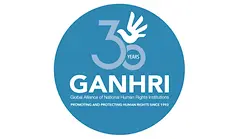
Business and Human Rights Due Diligence Regulation
Evento organizado por GANHRI.
20 de marzo de 2024.

Lawsuits against the machine
24 de abril de 2024.
"Derechos humanos y complicidades civiles".
15 de septiembre de 2023.
"El caso Girardi c. Emotiv desde una perspectiva de derechos humanos y empresas".
26 de octubre de 2023.
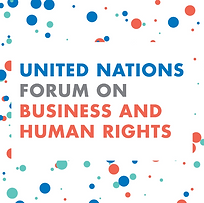
12° Foro de las Naciones Unidas sobre Empresas y Derechos Humanos
28-29 de noviembre de 2023.
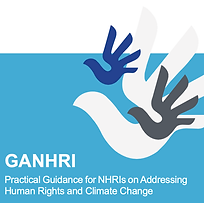
Business and Human Rights and its relation with environment (COP 23)
Evento organizado por GANHRI.
30 de noviembre de 2023.

United Nations B-TECH
"Regulaciones de Inteligencia Artificial en América Latina".
24 de octubre de 2023.

"Responsabilidad y reparación en materia de empresas y derechos humanos"
"Litigación estratégica ante el SIDH en materia de derechos humanos y empresas".
10 de mayo de 2024.

SLSA Annual Conference
"Algorithmic Discrimination"
27 de marzo de 2024.
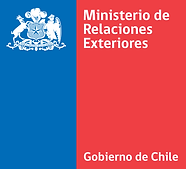
"Inteligencia artificial y derechos humanos: Tensiones y oportunidades entre el marco regulatorio interno y la política exterior chilena"
Presentación de informe en el marco del proyecto financiado por el Ministerio de Relaciones Exteriores de Chile.
7 de diciembre de 2023.
PUBLICACIONES
Artículos, libros y capítulos en el contexto de este proyecto de investigación.
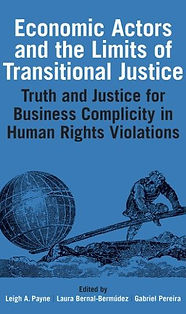
ECONOMIC ACTORS AND THE LIMITS OF TRANSITIONAL JUSTICE: TRUTH AND JUSTICE FOR BUSINESS COMPLICITY IN HUMAN RIGHTS VIOLATIONS
Complicity of Companies in Chile's Current Human Rights Crisis
The chapter examines the role of the private sector in the human rights violations that occurred during the 2019 Chilean social protests. It discusses corporate involvement, the role of courts in accountability efforts, the most effective legal framework, and the legal obstacles. The chapter contributes to understanding the legal opportunities and challenges that civil society mobilisation and legal innovators face to overcome the force of veto players in current corporate accountability affairs.

DERECHO A LA SALUD. PRESTADORES PRIVADOS. DISCAPACIDAD. CORTE IDH. CASO VERA ROJAS Y OTROS VS. CHILE
Revista Debates sobre derechos humanos
El presente trabajo analiza el razonamiento de la Corte Interamericana de Derechos Humanos en su sentencia en el caso Vera Rojas vs. Chile, emitida en octubre del año 2021, que interpretó los derechos humanos de niños, niñas y adolescentes en situación de discapacidad. La Corte se pronunció sobre el derecho a la vida e integridad personal y el derecho a la salud de la niña Martina Vera Rojas, particularmente en relación a la responsabilidad del Estado chileno para regular el sistema privado de salud y la potencial afectación cometida por agentes privados.

SOCIAL RIGHTS AND THE CONSTITUTIONAL MOMENT: LEARNING FROM CHILE AND INTERNATIONAL EXPERIENCES
Yesterday's Accomplices, Beneficiaries of Today: The Knots of Inequality Tied by the Dictatorship
Chile's constitutional moment began as a popular demand in late 2019. This collection seizes the opportunity of this unique moment to unpack the context, difficulties, opportunities, and merits to enhance the status of environmental and social rights (health, housing, education and social security) in a country's constitution. Learning from Chilean and international experiences from the Global South and North, and drawing on the analysis of both academics and practitioners, the book provides rigorous answers to the fundamental questions raised by the construction of a new constitutional bill of rights that embraces climate and social justice. With an international and comparative perspective, chapters look at issues such as political economy, the judicial enforceability of social rights, implications of the privatisation of public services, and the importance of active participation of most vulnerable groups in a constitutional drafting process. Ahead of the referendum on a new constitution for Chile in the second half of 2022, this collection is timely and relevant and will have direct impact on how best to legislate effectively for social rights in Chile and beyond.
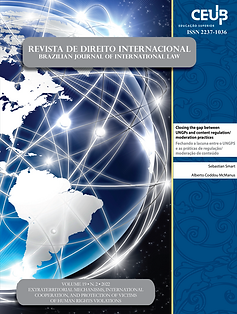
CLOSING THE GAP BETWEEN UNGPS AND CONTENT REGULATION/MODERATION PRACTICES
Brazilian Journal of International Law
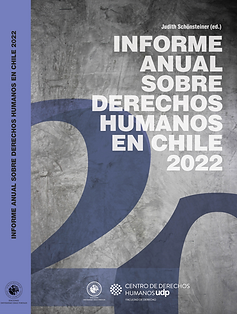
SMART CITIES Y DERECHOS HUMANOS
Informe Anual sobre Derechos Humanos en Chile 2022
El presente capítulo analiza los recientes programas, iniciativas o proyectos de ciudades inteligentes (smart cities) en Chile, a la luz de los principales estándares que pueden derivarse del derecho internacional de los derechos humanos. Para ello, el capítulo realiza una reconstrucción de estos estándares, teniendo especial consideración por aquellos derechos humanos que se ven involucrados en la realización del derecho humano a la ciudad, así como la reciente implementación, a nivel de los gobiernos locales, de las acciones de realización del conjunto de derechos humanos que tienen las personas. Con posterioridad, se realiza una evaluación de los recientes programas e iniciativas diseñadas o implementadas en la Región Metropolitana y en la ciudad de Valdivia. En esta última sección, se tiene especial consideración por la compleja interacción y los potenciales efectos negativos que las nuevas tecnologías pueden tener en los derechos humanos de las personas.

DESAFIOS DA INTERFACE NEURODIREITO E INTELIGÊNCIA ARTIFICIAL
El caso Girardi c. EMOTIV Inc. ante la Corte Suprema de Chile: ¿un paso adelante en la protección de los neuroderechos humanos?
The advance of neurotechnologies has transformed and innovated the panorama scientific and technological, providing promising improvements and advances in the understanding sion of the human brain and its eventual application in multiple aspects of life everyday. From brain-machine interfaces to brain stimulation devices deep rebral, neurotechnologies have spread beyond the borders of science fiction, proposing medical, cognitive and human enhancement applications. Despite the relevance of this exponential technological development, in order to improve the quality of life of people, such outlines important questions, especially regarding the protection and guarantee of human rights.
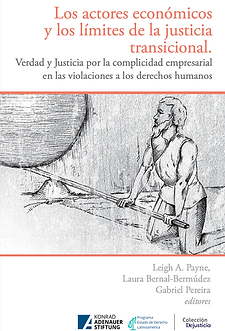
LOS ACTORES ECONÓMICOS Y LOS LÍMITES DE LA JUSTICIA TRANSICIONAL
La complicidad de las empresas en la actual crisis de derechos humanos en Chile
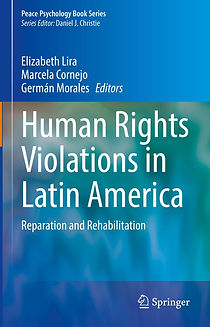
HUMAN RIGHTS VIOLATIONS IN LATIN AMERICA: REPARATION AND REHABILITATION
Completing the transitional justice narrative in Latin America
“Human Rights Violations in Latin America Reparation and Rehabilitation” is a necessary book, both to learn about past experiences and to trace repair paths in the future. Comprehensive reparation for human rights violations requires a form of psychological rehabilitation and this book highlights the experience of psychologists who—based on the demands of the victims—have worked in innovative and often risky ways to accompany the victims’ journey. The dictatorships and armed conflicts in the Latin American context are well known for the disappearance, torture and misappropriation of children, which have affected the direct victims, their families and loved ones to this day. In this context, the work of psychologists remains a key pillar that has served to advance in matters related to justice, truth, reparations and non-repetition measures.

JUSTICE IN CONTENTION: THE DYNAMICS OF LEGAL MOBILISATION IN CAIMANES' ENVIROMENTAL STRUGGLE
Social and Legal Studies
This paper examines legal mobilisation in socio-environmental movements through the Caimanes case, a Chilean community opposing the Los Pelambres mining project. It integrates structural and agency perspectives, highlighting the community's adaptation to political and legal opportunities and focusing on distributive environmental justice. The study identifies two protest cycles: the first seeking compensation, leading to community divisions, and the second addressing mining externalities, fostering unity and solidarity. It discusses judicial mobilisation's limitations, including challenges in aligning community and legal advisors’ aims and constraints within the Chilean judicial system. The analysis, based on fieldwork and secondary sources, contributes to understanding legal strategies in environmental justice movements, emphasising strategic decision-making's importance.

EXPANDING AND CONTRACTING THE UN GUIDING PRINCIPLES: AN ANALYSIS OF RECENT INTER-AMERICAN HUMAN RIGHTS COURT DECISION
Journal of Human Rights Practice
In 2021, the Inter-American Court of Human Rights (IACtHR) decided two cases for advancing the increasing jurisprudence on the implementation of human rights and business standards, yet there is still a gap to fill. Despite the important development with regards to the State obligation to supervise business operations, the decisions do not introduce further definitions of companies’ responsibilities on human rights nor the potential of creating mandatory remedies standards for private agents. Through the analysis of the 2021 case law, this article concludes that the IACtHR has been increasingly using the UN Guiding Principles to argue for its rulings but has missed the opportunity to generate greater accountability for companies and private actors in its decision-making.


